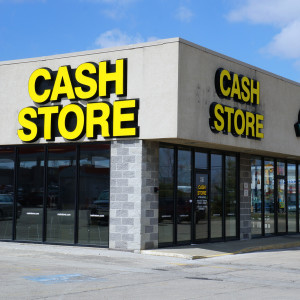Often called payday loans and frequently derided as “predatory,” the small loans market serves millions of customers every year. It has also been a top target of the Consumer Financial Protection Bureau since it began operating in 2011. The agency has said it will seek officially to propose new rules for the industry during the first quarter of 2016, and if early drafts are anything to go by, they won’t so much regulate the industry as destroy it.
The long-awaited rules will supposedly demand that lenders better assess the ability of consumers to repay, requiring additional hours and added paperwork for every loan issued, and cap interest rates at an unprofitable level.
To make the interest charges on payday loans sound exorbitant and in need of greater regulatory intervention, CFPB and other critics routinely cite the industry’s high annual percentage rates, as if a two-week loan is easily comparable to a 30-year mortgage. Other short-term options like online marketplace lenders and bank overdraft programs — for those who have bank accounts — actually tend to be even more costly than payday loans.
A group of economic researchers recently wrote on the New York Fed website about their findings that the payday loan market is highly competitive, arguing that the common critiques don’t hold up to scrutiny. Lenders charge what they must in order to make a profit in an industry with a clientele at higher risk of defaulting than typical bank borrowers, while the competition prevents them from charging much more than the costs of any such losses and overhead.
In other words, the result of the interest rate cap, especially when pared with the other added compliance costs, will likely be widespread closure of small-dollar lenders.
For CFPB bureaucrats that will be worth celebrating. The agency has been unusually fixated on the industry, going far beyond sensible efforts to prevent fraud and targeting it instead for outright destruction. It’s a sentiment that seems to permeate the Obama administration, as congressional investigations into Operation Choke Point — where banks were pressured to drop clients in politically disfavored but otherwise lawful industries — uncovered emails from senior FDIC officials acknowledging they “literally cannot stand payday.”
Tellingly, the administration’s jihad is not matched by public outcry. Only 2 percent of the more than 250,000 complaints the CFPB logged in 2014 were about payday loans. For the millions of Americans who occasionally find themselves in need of a cash infusion to cover unexpected costs like medical bills, but who lack access to other forms of credit, the new rules will prove punishing. That’s likely why the entire bipartisan House delegation from Florida signed a letter highly critical of the CFPB’s approach, but the agency doesn’t seem to care.
Rather than considering the interests of consumers first and foremost, CFPB unfortunately is more focused on cronyism. Emails recently revealed that CFPB officials collaborated closely with the nonprofit Center for Responsible Lending to draft its rules. CRL is part of a conglomerate that includes credit unions promoting an alternative product to compete with the same payday lenders that it extensively lobbied CFPB to eliminate from the market. If CFPB indeed releases its new rules soon as it has indicated, then we’ll learn by what they contain whether the first letter of its acronym truly stands for consumers instead of cronies.

